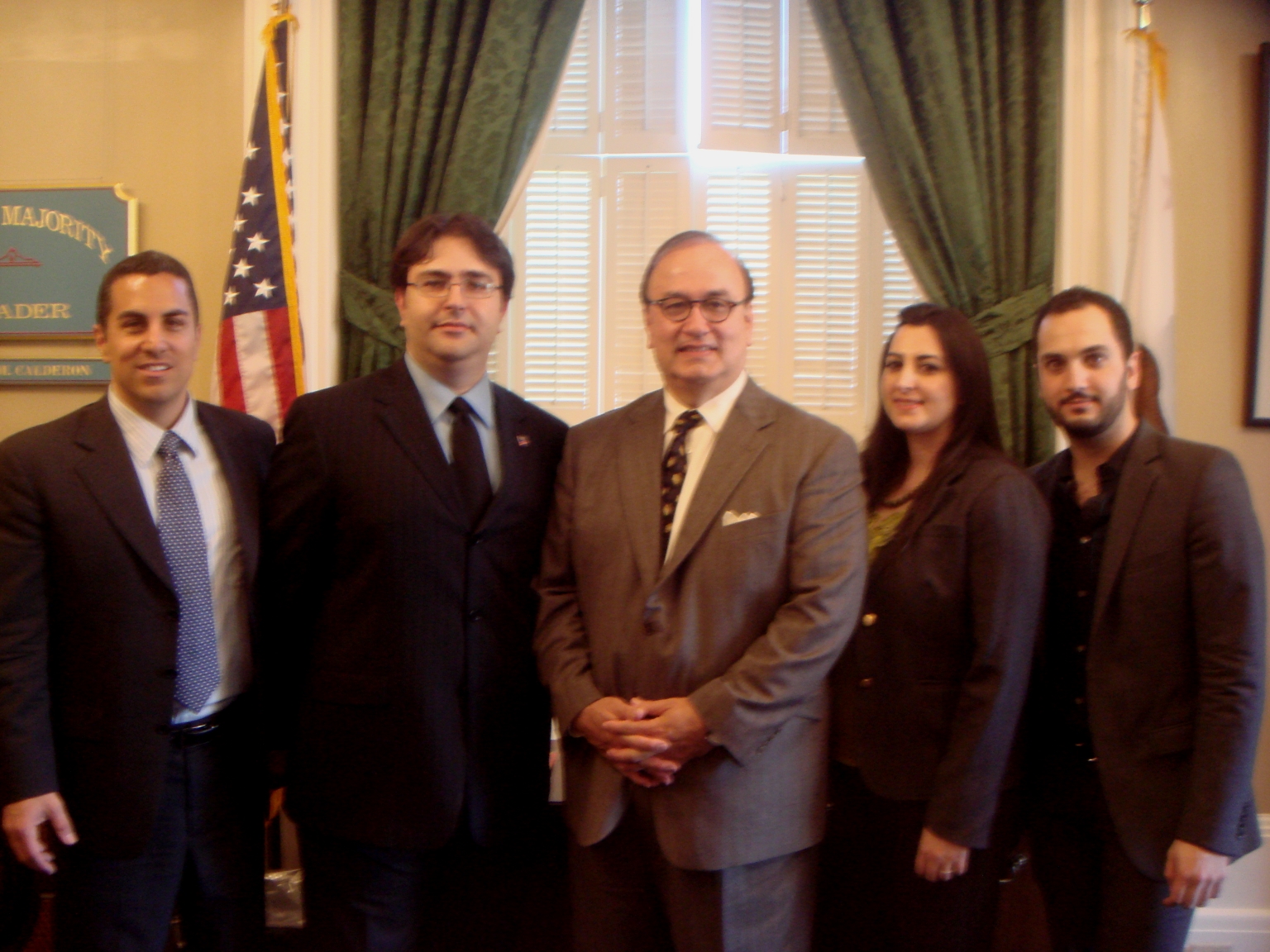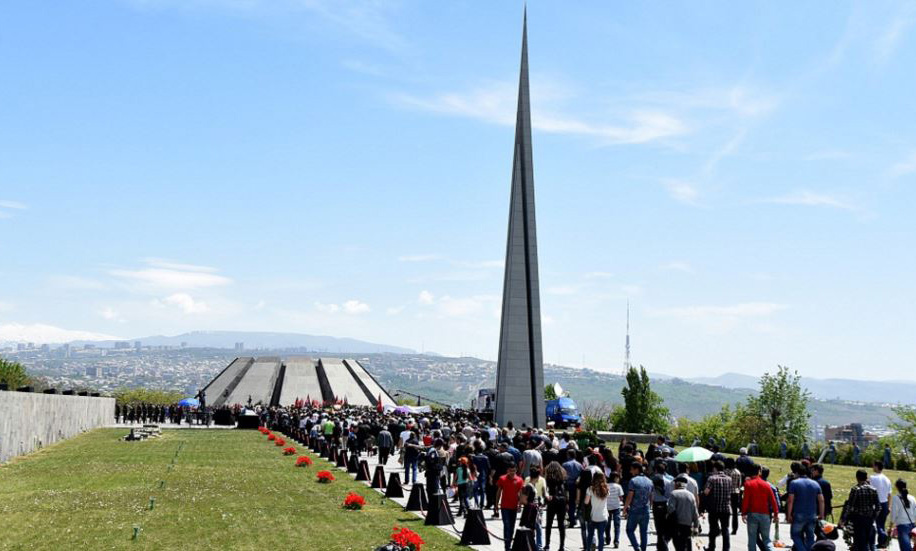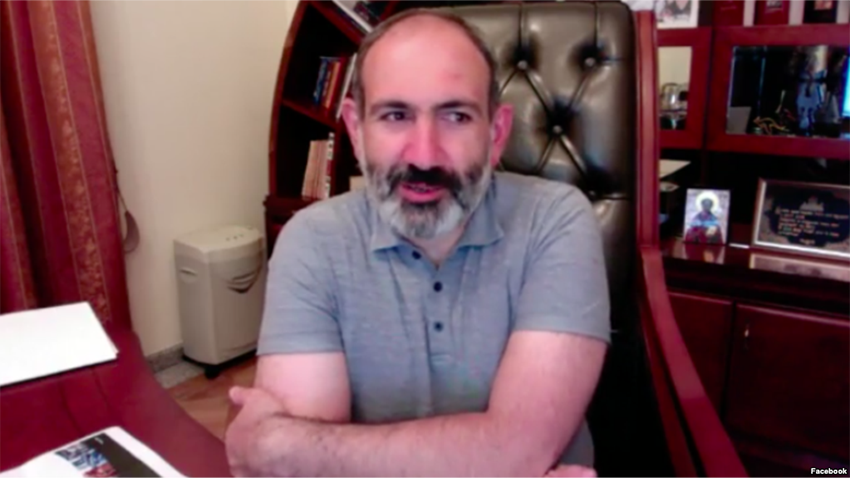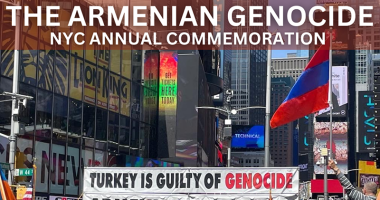As Glendale and other cities throughout the world schedule the commemoration of the Armenian Genocide by the Ottoman Turks nearly 100 years ago, we are often asked why? Why the inhumanity?
We are getting closer to the answer. Unlike the sporadic newspaper stories that surfaced of that genocide during the Great War, we can now witness nightly the level of atrocity men are willing to perpetrate on their fellow men. We can now dig faster and deeper into the psychic of these perpetrators.
Today, we see how a despotic ruler can systematically kill its political opposition in Syria, and while thousands of civilians are murdered, Bashar Assads’ wife is concerned about downloading purchases from iTunes. There is a disconnection of empathy. It is as if the capacityfor ethical considerationrequires that our limbic system be properly in tune. Without empathy, we can’t seem to conjure morality. Emotions trump reason.
We now know, through the efforts of neuroscientists, that our brain structures vary in their capacity of empathy. But we, nonetheless, pride ourselves on our ability to reason. Without rational thought, science and engineering would not have contributed so much to the great improvement in our quality of life. Without rationality, democracy, collaboration, and trade would be impossible. Yet,despite these great strides, we so easily succumb to our basest emotions.
Fear, hatred, and greed are stoked by politicians and despots alike. With these mind tools, the military continue to rule explicitly in many countries while giving themselves a false justification in killing those in opposition to their rule. In other countries, politicians of ill will continue their rule unabated while trashing their country’s finances and leaving millions in dire poverty and misery.
To Armenians,Enver Pasha and his triumvirate ruling Ottoman coalition nearly annihilated a nation. To the Kurds, Saddam Hussein stands firmly in infamy. To Ukrainians,Joseph Stalin stands as the murderer of millions by premeditated starvation. The list of inhumanity is too long. To Cambodians it was Pol Pot. To Koreans, Kim Jong Il. In Serbia Slobodan Milosevic establish internationally the horrific meaning of ethnic cleansing. In America the long history of slavery and racism is the stain we will always carry.
Yet, despite humanity’s long history of cruelty, two concepts stand as the bulwark to our worst instincts, democracy and reason.Compared to dictatorships, few real democracies initiate wars. Critical thinking and science stand as the bulwark to myth, racism, tribalism, and the myriad of basest survival emotions that no longer help our multi-ethnic and multi-cultural societies.
We have answers now. On April 24, we should remember that we are inherently biased. That standing in the way of harmonious diversity and civilized governance is a plethora of crude emotions readily available for exploitation by the psychopathic politician and his mindless followers. But they can only succeed through our ignorance and our unwillingness to confront them. The Armenian Genocide is now our annual stark commemorative reminder of the outcome of our indifference and our weaknesses. Now that we have answers, we can place clear objectives to our common call to action – Genocide, never again.
Inhumanity – An Attempt to Explain it
- No comments
- 3 minute read
Open Letter on the Proposal to Rename the Armenia-Turkey Border Crossing After Talat Pasha
We express our deep concern and disappointment regarding the recent proposal introduced…
- MassisPost
- July 3, 2025
- No comments
- 2 minute read
Pashinyan’s Visit to Turkey and Beyond
By KRIKOR KHODANIAN At the invitation of Turkish President Recep Tayyip Erdoğan,…
- MassisPost
- June 29, 2025
- No comments
- 3 minute read
“I Still Can’t Believe What Happened on June 20”
By LUSYEN KOPA Exactly three months ago, I wrote an article titled…
- MassisPost
- June 26, 2025
- No comments
- 4 minute read
Anniversary of the Immortality of the Twenty Hnchakian Heroes
By KRIKOR KHODANIAN 110 years ago these days, the prominent figures of…
- MassisPost
- June 15, 2025
- No comments
- 3 minute read











